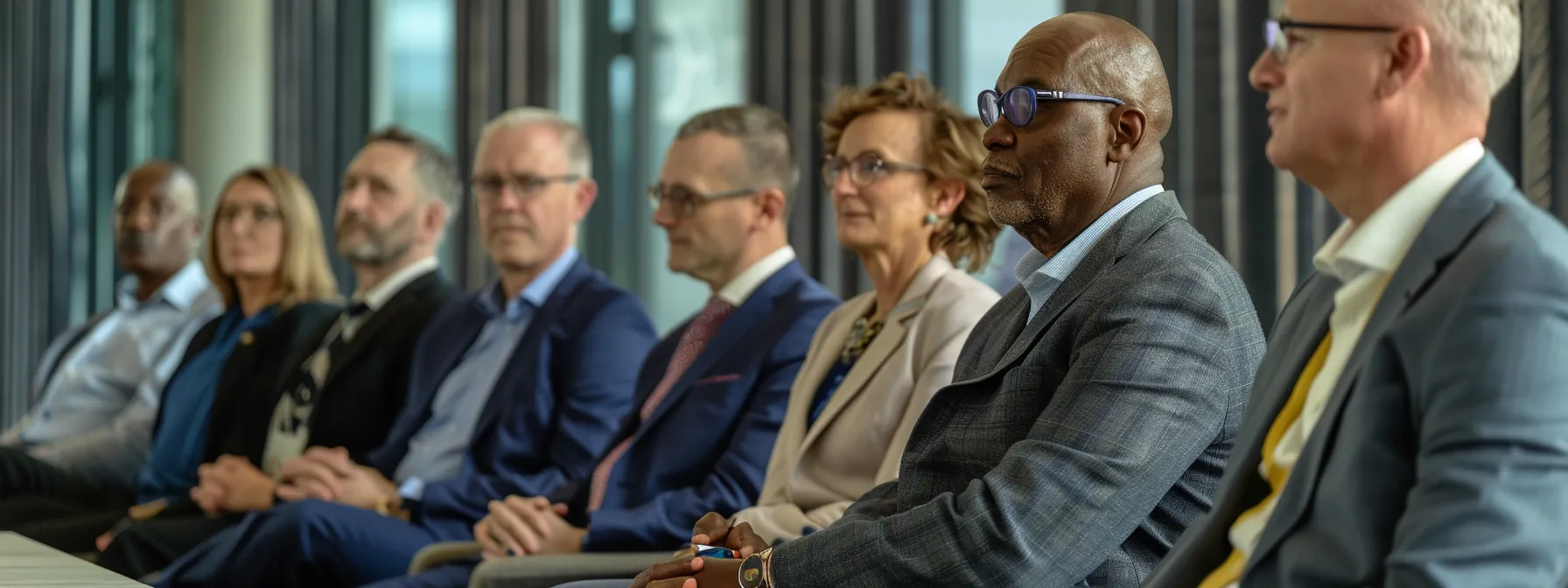Are you an investor facing potential arbitration? This comprehensive checklist will guide you through the process, from understanding arbitration’s importance to managing post-arbitration outcomes. We’ll cover essential documentation, legal representation options, and case strength assessment. By following this guide, you’ll be better prepared to navigate international arbitration effectively, protecting your portfolio and investments in today’s complex economic landscape. Whether dealing with foreign direct investment disputes or regulatory challenges, this checklist equips you with the knowledge to safeguard your financial interests in International Arbitration Readiness.
Essential Points to Remember
- Understand arbitration policies and maintain comprehensive records of all trade-related transactions and communications.
- Evaluate the benefits and drawbacks of arbitration versus traditional court litigation for dispute resolution.
- Select experienced legal representation with expertise in international trade and investment arbitration.
- Assess your case’s strength, anticipate opposing party defenses, and prepare thoroughly for hearings and testimonies.
- Review arbitration awards carefully and consider options for enforcement or challenge based on your business objectives.
Essential Points to Remember

Understand your corporation’s arbitration policy and trade agreements. Familiarize yourself with the specific clauses that outline dispute resolution processes and the circumstances under which arbitration may be invoked.
Maintain comprehensive records of all trade-related transactions and communications. These documents can serve as crucial evidence in arbitration proceedings, potentially strengthening your position against counterparties.
Consider the potential benefits and drawbacks of arbitration versus traditional court litigation. Arbitration often offers faster resolution and confidentiality, but may limit your ability to appeal decisions:
Consult with legal counsel experienced in international trade disputes and arbitration. Their expertise can help you navigate complex arbitration procedures and develop effective strategies to protect your investments.
Understanding the Importance of Arbitration for Investors

Arbitration plays a crucial role in protecting your rights as an investor under free trade agreements and international law. Understanding how arbitration differs from traditional litigation can help you navigate dispute resolution processes effectively. This section explores the benefits of arbitration in safeguarding your investments and compares it to court proceedings, focusing on treaties, tribunals, and their relevance in countries like Canada.
Recognizing How Arbitration Protects Investor Rights
Arbitration serves as a powerful tool to protect your rights as an investor under international trade agreements. When you engage in cross-border investments, you may encounter disputes with foreign governments or entities. The arbitration process, governed by institutions like the United Nations Commission on International Trade Law (UNCITRAL), provides a neutral forum to resolve these conflicts efficiently and fairly.
By choosing arbitration, you gain access to specialized arbitral tribunals that understand the complexities of international investment law. These tribunals, often composed of experts in the field, can interpret and apply relevant treaties, including those within the European Union framework. This expertise ensures that your rights are upheld according to international standards, even when dealing with disputes involving the European Commission or member states:
- Access to neutral, specialized tribunals
- Interpretation of complex international treaties
- Protection against unfair treatment by foreign governments
- Enforcement of awards across borders
Comparing Arbitration With Litigation for Dispute Resolution
When comparing arbitration with litigation for dispute resolution in international investment agreements, you’ll find distinct advantages in arbitration. Under bilateral investment treaties and agreements like the North American Free Trade Agreement, arbitration offers a more flexible, confidential, and potentially faster process than traditional court litigation. You can access specialized tribunals like the International Centre for Settlement of Investment Disputes, which possess expertise in complex international investment issues.
Arbitration allows you to bypass national courts, potentially avoiding bias or lengthy proceedings. This process often results in binding decisions that are more easily enforceable across borders compared to court judgments. However, you should weigh these benefits against the potential drawbacks, such as limited appeal options and costs:
- Flexibility in choosing arbitrators and procedures
- Confidentiality of proceedings and awards
- Expertise in international investment law
- Enforceability of arbitral awards across jurisdictions
- Potential for faster resolution compared to court litigation
Preparing Essential Documentation for Arbitration

To prepare for arbitration, you must compile essential documentation. This includes gathering all relevant investment records, contracts, and organizing correspondence evidence. Proper documentation strengthens your position in alternative dispute resolution processes, ensuring compliance with the rule of law. Thorough preparation is crucial for protecting your interests in potential lawsuits or arbitration proceedings.
Compiling All Relevant Investment Records and Contracts
To prepare for arbitration, compile all relevant investment records and contracts related to your transactions under agreements like the Transatlantic Trade and Investment Partnership or the Comprehensive Economic and Trade Agreement. Gather documents that demonstrate your investments, including financial statements, tax records, and any correspondence with foreign governments or entities.
Organize your documentation chronologically, focusing on evidence that supports your claims and demonstrates compliance with OECD guidelines for responsible business conduct. Include productivity reports, market analyses, and any records showing the impact of government actions on your investment to strengthen your position in potential arbitration proceedings.
Organizing Correspondence and Communication Evidence
When organizing your correspondence and communication evidence for arbitration, prioritize documents related to your capital investments and stock transactions. Pay particular attention to communications involving the Energy Charter Treaty, as these can be crucial in disputes concerning energy sector investments. Organize emails, letters, and meeting minutes chronologically, highlighting key discussions about your investments and any concerns raised with counterparties.
Create a separate file for any correspondence related to intellectual property rights, especially if your case might involve the World Intellectual Property Organization. Include any previous arbitration awards that may be relevant to your current dispute, as these can provide valuable precedents. Ensure all digital communications are properly archived and easily accessible, as they may be critical in supporting your claims during the arbitration process.
Evaluating Your Legal Representation Options

When preparing for arbitration, selecting the right legal representation is crucial. You need to identify qualified attorneys experienced in international trade and mergers and acquisitions. Consider costs, service terms, and expertise in areas like infrastructure and insurance. This section guides you through evaluating legal representation options to protect your investments effectively.
Identifying Qualified and Experienced Arbitration Attorneys
To identify qualified and experienced arbitration attorneys, focus on lawyers with expertise in international tax law and equity disputes, particularly those familiar with Latin American markets. Look for professionals who have successfully represented clients in cases involving foreign direct investment and can navigate complex cross-border legal frameworks.
Consider attorneys who possess in-depth knowledge of bilateral investment treaties and can provide comprehensive information on arbitration procedures. Seek recommendations from industry peers or consult legal directories that specialize in international arbitration. Your chosen lawyer should demonstrate a strong track record in protecting investor rights and resolving disputes efficiently:
- Expertise in international tax and equity disputes
- Experience with Latin American markets
- Knowledge of bilateral investment treaties
- Proven success in arbitration cases
- Strong network in the international legal community
Considering Costs and Service Terms When Choosing Legal Representation
When considering costs and service terms for legal representation in arbitration, carefully review the fee structures proposed by potential attorneys. Compare hourly rates, retainer fees, and any success-based compensation, keeping in mind the potential complexity of cases involving multinational corporations and the Office of the United States Trade Representative. Ensure that the arbitration clause in your agreement with the lawyer clearly outlines the scope of services and payment terms.
Evaluate the data management capabilities of prospective legal teams, as handling extensive economic and financial information is crucial in arbitration proceedings. Consider how each firm plans to analyze and present complex data sets to support your case. Ask about their experience in economics-related disputes and their ability to collaborate with expert witnesses in relevant fields to strengthen your position in the arbitration process.
Assessing the Strength of Your Case Before Arbitration

Before entering arbitration, assess your case’s strength to make informed decisions. Analyze the merits and potential outcomes, considering transparency requirements in countries like the Netherlands and Germany. Understand possible defenses from opposing parties and evaluate your evidence. This evaluation helps you gauge risks and prepare effectively for the arbitration process.
Analyzing the Merits and Potential Outcomes of Your Case
Analyze the merits of your case by evaluating your evidence against the United Nations Conference on Trade and Development guidelines. Assess potential outcomes by considering precedents in similar dispute resolution cases. This analysis will help you gauge the strength of your position and prepare for possible appeals or extended trial processes.
Calculate the potential financial impact of different arbitration outcomes, including associated fees and costs. Consider how each scenario might affect your investment strategy and business operations. This assessment will enable you to make informed decisions about pursuing arbitration or exploring alternative dispute resolution methods.
Understanding Possible Defenses From the Opposing Party
To effectively prepare for arbitration, you must anticipate potential defenses from the opposing party. Consider how they might challenge your jurisdiction claims, especially if your dispute involves a greenfield project or intellectual property rights. Understand that the opposing party may argue for mediation as an alternative to arbitration, particularly if the case involves United States entities.
Analyze the strength of your evidence against possible counter-arguments. Evaluate whether the opposing party might claim force majeure or invoke specific clauses in your agreements to justify their actions. Prepare responses to these potential defenses, focusing on the validity of your claims under applicable international laws and treaties:
Navigating the Arbitration Process Effectively

Navigate the arbitration process effectively by familiarizing yourself with rules and procedures, especially those of the International Chamber of Commerce. Prepare thoroughly for hearings and testimonies to protect your assets and property interests. Understanding China’s arbitration landscape is crucial for international investors. These steps will help you confidently approach arbitration proceedings.
Familiarizing Yourself With Arbitration Rules and Procedures
Familiarize yourself with arbitration rules and procedures to navigate potential conflicts of interest and ensure a fair process. Review the guidelines set by the Financial Industry Regulatory Authority, paying close attention to rules regarding witness testimony and the use of technology in arbitration proceedings. This knowledge will help you prepare effectively and avoid procedural missteps.
Stay informed about sustainability considerations in arbitration, as these increasingly impact dispute resolution in various industries. Understand how arbitrators may factor environmental and social governance issues into their decisions, especially in cases involving the financial industry or technology sectors. This awareness will help you anticipate potential challenges and strengthen your position during the arbitration process.
Preparing for Arbitration Hearings and Testimonies
To prepare for arbitration hearings and testimonies, review World Trade Organization guidelines on dispute resolution procedures. As a plaintiff, familiarize yourself with the rules of evidence presentation and cross-examination techniques. Your preparation should include a thorough analysis of financial documents and an understanding of how your nationality may impact the proceedings.
Practice your testimony with your legal team, focusing on clarity and consistency in your responses. Prepare to address questions about your finance records and investment decisions. Remember that the arbitration panel seeks to deliver justice, so maintain a professional demeanor throughout the process. Key preparation steps include:
- Reviewing relevant trade agreements and arbitration clauses
- Organizing financial documents and evidence chronologically
- Practicing responses to potential cross-examination questions
- Understanding the role of expert witnesses in supporting your case
- Familiarizing yourself with the arbitration venue and procedures
Managing Outcomes After Arbitration: Investor Steps

After arbitration, carefully manage the outcomes to protect your investments. Review the award thoroughly for accuracy, considering implications for international investment agreements and host governments. Explore options for enforcing or challenging the award, understanding the role of judges and payment processes. These steps ensure you effectively navigate post-arbitration procedures and safeguard your interests.
Reviewing the Arbitration Award Thoroughly for Accuracy
After receiving your arbitration award, review it meticulously for accuracy, particularly if your case involves investments in Asia or impacts your gross domestic product. Examine the award’s compliance with the Federal Arbitration Act and its potential effects on your business in the context of globalization. Verify that all calculations, dates, and parties involved are correctly stated to ensure the award’s enforceability.
Pay close attention to how the award aligns with the Convention on the Recognition and Enforcement of Foreign Arbitral Awards, especially if you need to enforce it across borders. Check that the reasoning provided in the award is clear and consistent with the evidence presented during the proceedings. This thorough review will help you identify any potential grounds for challenging the award or preparing for its enforcement.
Considering Options for Enforcing or Challenging the Award
After receiving an arbitration award, evaluate your options for enforcement or challenge based on your income and export considerations. If the award favors you, focus on enforcing it promptly, especially if it impacts your balance of payments with countries like Mexico. Consider the settlement terms and how they align with your business objectives before deciding on your next steps.
Should you decide to challenge the award, assess the grounds carefully, considering the potential impact on your future trade relationships and income streams. Review the award’s compliance with international conventions and local laws, particularly if enforcement involves cross-border transactions. Consult with legal experts familiar with arbitration in Mexico or other relevant jurisdictions to understand the implications of challenging the award on your overall investment strategy.
Conclusion

As an investor, your readiness for arbitration is crucial in safeguarding your interests across diverse markets, including Japan and Africa. Understanding the arbitration process, from discovery to damages assessment, positions you for success in resolving international disputes.
Proper documentation and language preparation are essential for effective arbitration. Ensure all relevant records are organized and easily accessible, and consider potential language barriers that may arise during proceedings.
Evaluating your legal representation and assessing your case’s strength are critical steps in arbitration preparation. These actions help you navigate complex international agreements and potential challenges:
By following this comprehensive checklist, you enhance your arbitration readiness, ensuring you’re well-prepared to protect your investments and navigate disputes effectively in the global market.
Frequently Asked Questions
How can investors prepare essential documentation for arbitration?
Investors can prepare for arbitration by gathering all relevant contracts, communications, financial records, and supporting documents. They should organize these materials chronologically, create a concise summary of events, and consult with legal counsel to ensure all essential documentation is complete and properly presented.
What factors should be considered when evaluating legal representation for arbitration?
When evaluating legal representation for arbitration, consider the attorney’s experience in arbitration proceedings, expertise in the relevant area of law, track record of success, communication skills, fee structure, availability, and understanding of your specific case and goals.
How can an investor assess the strength of their case before arbitration?
Investors can assess their case strength before arbitration by reviewing relevant documents, consulting with legal counsel, evaluating precedents, and analyzing the merits of their claim. They should consider the strength of evidence, contractual obligations, and potential counterarguments to gauge their likelihood of success.
What are the key steps in navigating the arbitration process effectively?
To navigate arbitration effectively, understand the process, choose an experienced arbitrator, gather evidence, prepare a strong case, present arguments clearly, and consider settlement options. Comply with procedural rules, maintain professionalism, and be prepared for the final, binding decision.
What should investors do to manage outcomes after arbitration?
Investors should carefully review the arbitration award, consult with legal counsel, and consider enforcement options if necessary. They should also assess the impact on their investment strategy, update relevant stakeholders, and implement any required changes to their business practices or contracts to prevent future disputes.
Conclusion
Arbitration readiness is paramount for investors navigating the complexities of international trade and investment disputes. A comprehensive checklist equips investors with the knowledge and tools to protect their interests, from understanding arbitration policies to preparing essential documentation and selecting qualified legal representation. Thorough preparation, including case strength assessment and familiarity with arbitration procedures, significantly enhances an investor’s position in resolving conflicts efficiently and favorably. By prioritizing arbitration readiness, investors can confidently engage in global markets, safeguarding their investments and ensuring effective dispute resolution in an increasingly interconnected business landscape.
Our team of attorneys are ready to help you for your cross border disputes. To learn more about our international arbitration practice, come visit our International Arbitration page


